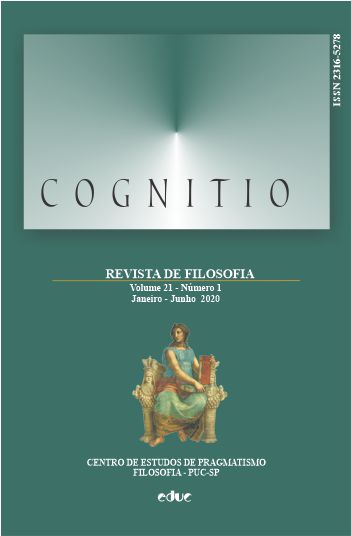Knowing ourselves and recognizing others: reading Rorty’s contribution to the epistemology of the self
DOI:
https://doi.org/10.23925/2316-5278.2020v21i1p25-33Keywords:
Aesthetic, Logical normativity, Narrative model of self, Rorty.Abstract
In this essay I place Rorty’s narrative account of the self in the history of modern and contemporary philosophy. My thesis is that his rejection of both Cartesian introspectivism and psycho-biological reductionist explanations originally issues from an epistemology of the self which is in line with Hume’s insights about the contingency of selfhood but, also, introduces a complex approach to the philosophical question about the relation between the aesthetic and rational realm. Moreover, I advance an anti-skeptical, dynamic and normative reading of Rorty’s narrative model of the self, which relates to his understanding of irony—we can always doubt that our final vocabulary is the best one available—and of solidarity—conceived not only as an affective movement towards the other, but also as a logical condition for the functioning of human communication.Downloads
Published
2020-07-19
How to Cite
Calcaterra, R. M. (2020). Knowing ourselves and recognizing others: reading Rorty’s contribution to the epistemology of the self. Cognitio: Revista De Filosofia, 21(1), 25–33. https://doi.org/10.23925/2316-5278.2020v21i1p25-33
Issue
Section
Cognitio Papers









